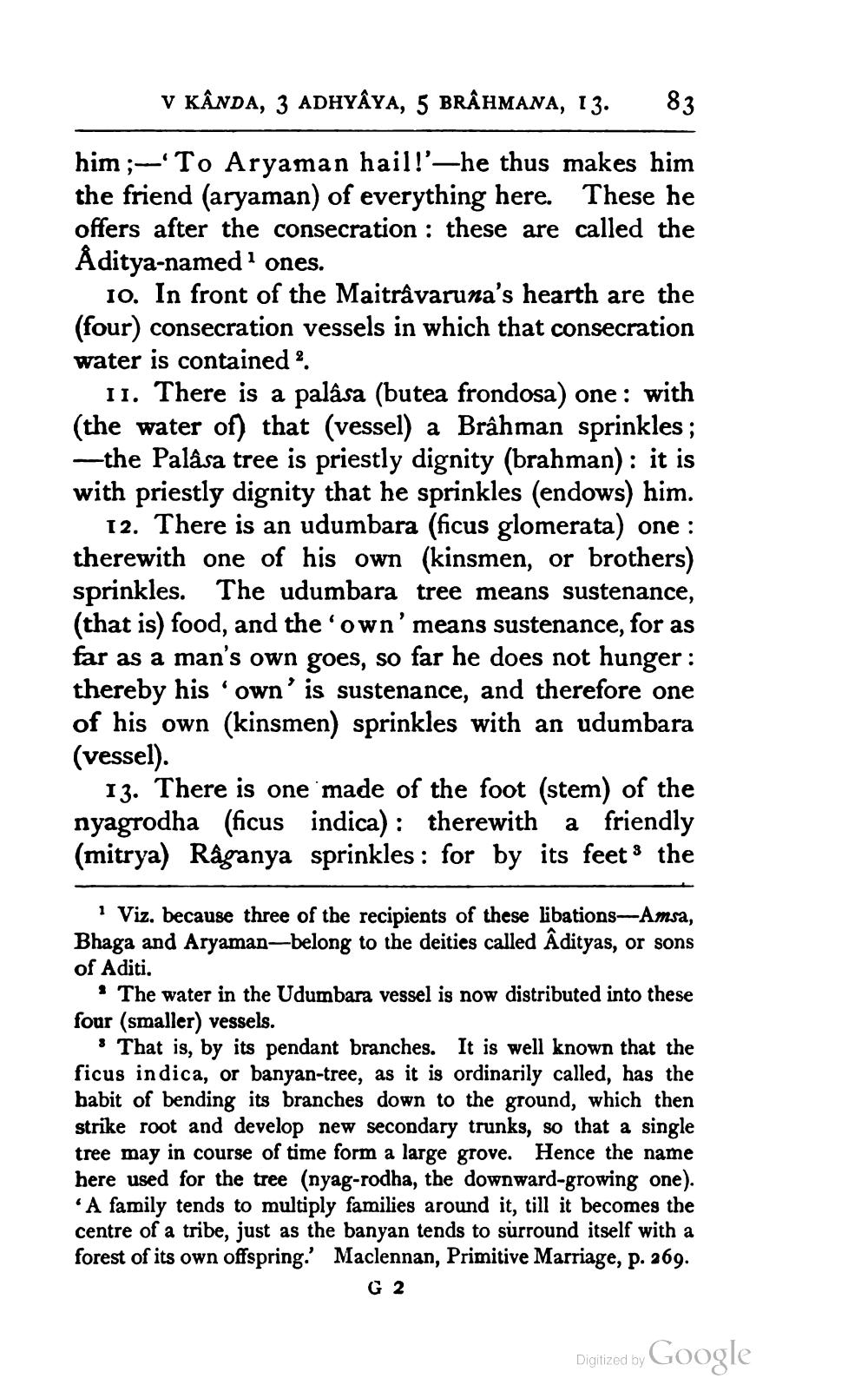________________
V KÂNDA, 3 ADHYÂYA, 5 BRÂHMANA, 13.
83
him ;-'To Aryaman hail!'—he thus makes him the friend (aryaman) of everything here. These he offers after the consecration : these are called the Åditya-named ones.
10. In front of the Maitrâvaruna's hearth are the (four) consecration vessels in which that consecration water is contained.
II. There is a palâsa (butea frondosa) one: with (the water of) that (vessel) a Brâhman sprinkles ;
-the Palåsa tree is priestly dignity (brahman): it is with priestly dignity that he sprinkles (endows) him.
12. There is an udumbara (ficus glomerata) one : therewith one of his own (kinsmen, or brothers) sprinkles. The udumbara tree means sustenance, (that is) food, and the own' means sustenance, for as far as a man's own goes, so far he does not hunger : thereby his own' is sustenance, and therefore one of his own (kinsmen) sprinkles with an udumbara (vessel).
13. There is one made of the foot (stem) of the nyagrodha (ficus indica): therewith a friendly (mitrya) Raganya sprinkles : for by its feets the
1 Viz. because three of the recipients of these libations-Amsa, Bhaga and Aryaman—belong to the deities called Âdityas, or sons of A diti.
The water in the Udumbara vessel is now distributed into these four (smaller) vessels.
* That is, by its pendant branches. It is well known that the ficus indica, or banyan-tree, as it is ordinarily called, has the babit of bending its branches down to the ground, which then strike root and develop new secondary trunks, so that a single tree may in course of time form a large grove. Hence the name here used for the tree (nyag-rodha, the downward-growing one).
A family tends to multiply families around it, till it becomes the centre of a tribe, just as the banyan tends to surround itself with a forest of its own offspring.' Maclennan, Primitive Marriage, p. 269.
G 2
Digitized by Google




